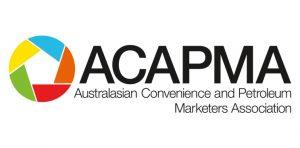By Australasian Convenience and Petroleum Marketers Association CEO Mark McKenzie.

Chances are that, unless you have been closely following ACAPMA’s discussion on merchant services fees, you are probably unaware of the rising cost of processing card transaction fees in your business. This cost has been rising in recent years and will potentially increase further as a result of the fallout from new market development in the financial services space, and an apparent inability of the Reserve Bank to regulate debit fees effectively (i.e. by keeping them in line with CPI).
It’s not that long ago that most Australian retail businesses were paying banks for cash management services, such as night banking and cash pickups. Those days are long gone. Today, nearly all customer transactions are card transactions – that is, credit cards and debit cards – with a small, but increasing, number of mobile phone and digital payments.
But businesses are still paying banks for payment services. These fees are being levied electronically on all card transactions.
In the past year alone, fuel retailers paid an estimated $116M a year for the processing of around 608 million transactions.
This money is quietly ‘clipped’ from business bank accounts each time a customer’s payment is banked, under the umbrella of the Merchant Services Agreements that operate between businesses and their banks.
The structure of these fees is not something a business owner typically focusses on but, given the cost of processing card transactions has nearly doubled over the last four years, it is time for all of us to watch these costs closely.
While part of the explanation for the rising costs lies in increasing customer use of debit cards and mobile payments in recent years, it is worth noting that much of the cost increase is attributed to card payments being ‘routed’ down a higher cost process by the bank – basically, because the banks earn more from doing so.
Put simply, card transactions processed at point of sale (POS) terminals in Australia are processed by one of two routes – a generally higher cost international credit card route managed by the banks on behalf of VISA and Mastercard, and a generally lower cost domestic payment route managed by Eftpos.
The decision to route the payments is made by the banks who programme the POS terminal, generally without the knowledge of the businesses. Given the banks earn more money from the higher cost route, it isn’t hard to guess which route they use as the default setting. In fact, the route is generally only changed if the business is aware of this fact and then approaches an accommodating bank to have the setting changed to the Eftpos route.
A typical fuel transaction of $70 attracts an 18c fee via the low cost Eftpos route and 32c via the higher cost International Credit Card route.
This may all sound like ‘mere cents’ but for an average suburban servo, this cost equates to an additional cost of $12,500 per year – all of which comes straight off the bottom line with no benefit to the business whatsoever – despite the fact that the payment could be processed in just the same manner via the cheaper route.
When you look at this cost across the industry, our industry is likely to be paying around $68M more than it should to process card transactions each year. That is big money in anyone’s language.
It is for this reason that ACAPMA has teamed up with a host of other industry bodies – including COSBOA, the Master Grocers Association, the Australian Lotteries and Newsagents Association and the Australian Association of Convenience Stores – to lobby for change.
This effort is being undertaken against a background of three key developments. The first is a review of the national regulation governing merchant payments. This work is being undertaken by the Reserve Bank of Australia and ACAPMA responded by seeking amendment of the regulation to require POS terminals to default to the least cost route (LCR), with provision for the business to nominate the higher cost route if it made sense as part of their total merchant services agreement with their bank (i.e. other benefits).
The second development is an ACCC application by the Banks – who also happen to be the majority of owners of Eftpos – to merge Australia’s three domestic payment services providers (i.e. Eftpos, BPay and the National Payments Platform). ACAPMA has made submissions opposing this merger on the basis that it will result in a consolidated entity that will likely expend less effort on the provision of LCR functionality in the future (A conspiracy theorist might even go so far as to suggest that was a possible objective of the merger).
The third is a review of the function of the Reserve Bank of Australia in respect of payments. The Federal Government Review, known as the Farrell Review, is being undertaken by Federal Treasury and is expected to be finalised in November 2021. ACAPMA has been participating in this process by making representations to senior bureaucrats and politicians about the need to guard against unreasonable escalation of merchant fees in the future, irrespective of the payment method used by the customer (i.e. in person, online, mobile phone or by digital wallet).
All of this is complicated but the key message to our members is this – it is time to take control of your own merchant fees by talking to your bank about your terminal being set to process card transactions by the least cost route.
If your bank doesn’t offer it, then it might be time to look elsewhere.
In the meantime, ACAPMA will continue to pursue improvements across all three of the agendas mentioned above with a view to ensuring that adequate safeguards are put in place to protect businesses against the rising -and somewhat silent – cost of merchant fees in the future.




